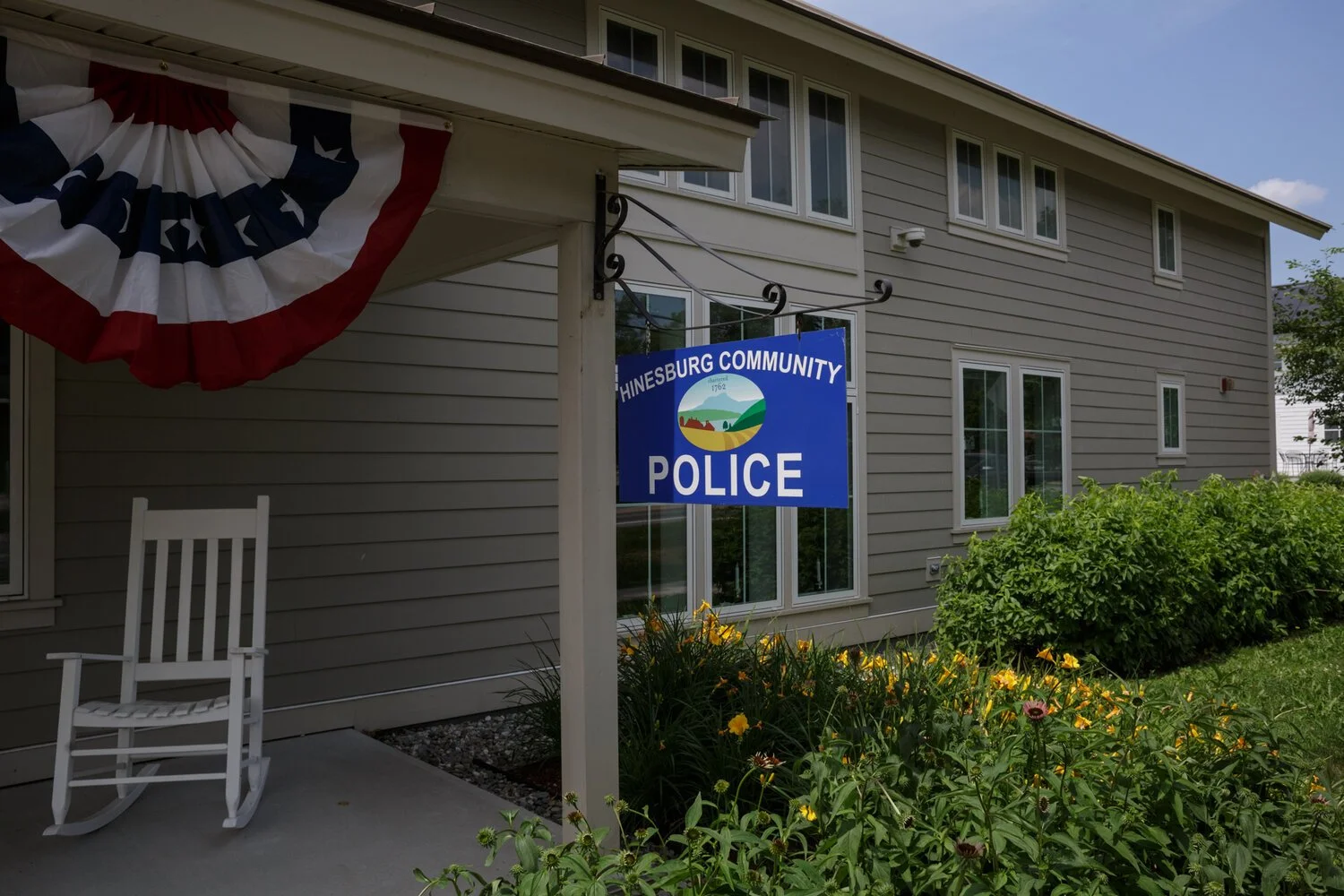Proposed Hinesburg police budget rekindles debates
The Hinesburg Community Police building. Photo by Anna Watts.
With a modest police budget increase on the ballot, Hinesburg residents are divided and revisiting debates over police spending.
This year’s proposed budget would increase Hinesburg’s police spending by $10,830, a net 1.3% increase from last year’s budget of $804,653.
Although this is a relatively small-scale increase which, according to FY23 Budget expenses is spread mostly between insurance and vehicle fuel, with no increase in police salary, it has roused online debate among residents.
“I can't figure out why this community in particular needs to spend so much more on policing than other VT towns our size. Are we that much more dangerous? And if so, why not address the root of the problems with more social services and skilled social workers.” said Becky Alford on a Front Porch Forum post.
There are also people posting on Front Porch Forum in support of the police budget. Andrew Leise cited the benefits of having a larger police force during “imminent danger” situations as well as officer safety, two of the arguments made by Cambridge when the town was debating the necessity of a sixth officer in the Fall of 2020.
Town Manager, Todd Odit, hypothesized that the online debate was less about the 1% increase and more about the purpose of the police department and questioning whether the town needs the number of full-time officers it has now.
“Employees are the most expensive portion of any budget,” said Odit. “If you put six people in any department, which is the most people in any department, that department would probably have the highest budget.”
According to recently released research from UVM’s Center for Research on Vermont, Hinesburg’s budget is in the top 30 of the highest proposed police budgets among towns in a nearly 100-town study on Vermont municipal police budgets. That works out to about $180 per capita police spending.
Montpelier will have the highest per capita police spending at about $450 per person among the towns and cities researched. The overall average increase this year is about 7.5%, compared to Hinesburg’s proposed 1.3% increase.
Even though the increase is lower than the state average, citizens are taking the opportunity to make their stance on local policing known.
The Hinesburg Racial Equity Working Group called voters to vote down the proposed budget in a statement from Beth Danon, the group’s spokesperson.
The group denounced the overall police budget, not just the 1% increase, “As a small town with a low crime rate, this budget is out of proportion to our needs.”
The group also denounced the number of officers. When taking the part-time officers into account, “the town has the equivalent of seven armed officers to respond to community needs that largely do not require an armed response” the statement said.
Their hope is that negative votes will “send a message to the Select Board to come back with a new proposal on the police budget,” the statement said.
This proposal, they hope, will be centered around mental health, unarmed de-escalation, licensed social workers, and basic community needs.
The Hinesburg Police Department joined the Howard Center’s Community Outreach Program, a goal of Cambridge’s as part of an emphasis on “restorative justice.” This contracted service only costs about $7,500 annually thanks to support from UVM Medical Center, the Department of Mental Health as well as state funding.
Data provided by Deana Ryerson, the Director of Crisis at the Howard Center, shows that the program’s services have been used on calls in Hinesburg over 200 times since the partnership began in the spring of 2021.
Trying to prevent the root problems of crime, like being unhoused, mental illness and substance abuse issues, is something many residents want to see happen through more social work and less armed officers.
Currently the 6th officer is paid in part by the COPS grant, but the position’s necessity was up for debate in 2021 when Brett Lindemuth resigned as a full-time officer. After debate and consultation with chief Cambridge, the town decided to maintain the 6 officer crew as budgeted, hiring Officer Eickenberg as the replacement.
Odit said the board’s sentiment was “to hold that position for four years and then evaluate whether or not that position [is] needed, once the grant commitment [is] over.”
According to Odit the grant is designed to be weaned off by about 25% annually until the fourth year, where the town will pay the entire salary.
Odit predicts that by 2025 taxpayers will be responsible for the entire salary. He also says Hinesburg can withdraw from the four year grant at any-time.







